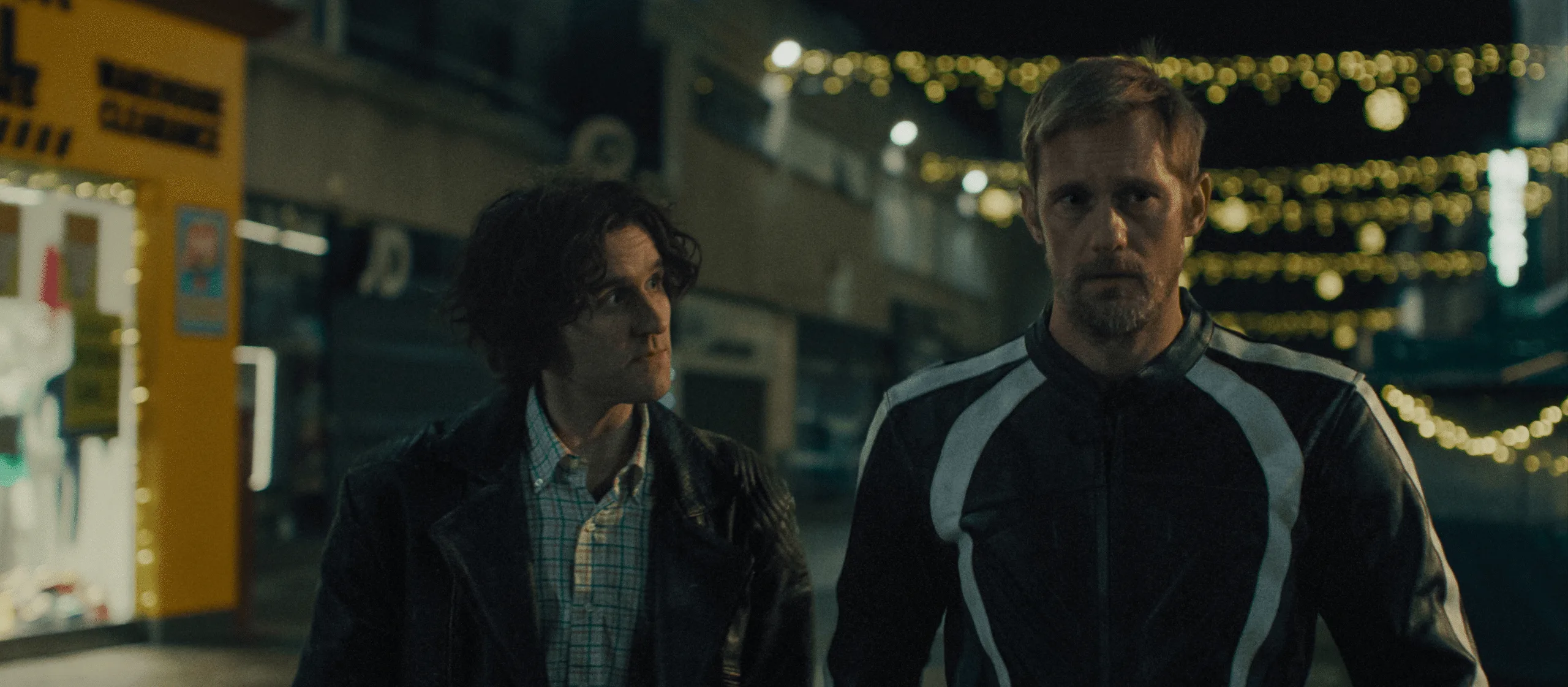After what felt like a slow start, Cannes 2025 exploded over the weekend with lauded premieres from beloved filmmakers like Lynne Ramsay, Richard Linklater, and Wes Anderson, alongside some remarkable debuts. This dispatch features a blazing cinematic hallucination from the director of “You Were Never Really Here,” a clever little experiment in themes that have defined the career of a German auteur, and an announcement of a major new talent in one of the two incredible debuts that I’ve seen at this festival this year (Robert Daniels is covering the other one, so I’ll keep that a secret for now).
Let’s get to the scorcher, a film that takes postpartum depression and turns it into a punk rock horror nightmare. Lynne Ramsay adapts Ariana Harwicz’s book with her “Die, My Love,” an unapologetic primal scream of a film that turned some people off in Cannes but earned enough buzz that MUBI grabbed it for a whopping $23 million, hoping that it can have a similar trajectory to what they did last year with “The Substance.”
We have seen dramas about the issues that can arise after the birth of a child before, but never the way Ramsay does so here, turning these tumultuous days and weeks into a fever dream, a nightmare of sexuality, violence, conflict, and manic behavior. All of it is filtered through career-best work from Jennifer Lawrence, who is fearless as Grace, the partner to Robert Pattinson’s Jackson. The pair is moving into Jackson’s late uncle’s home as the film opens, and one can sense that tension is on the horizon right from the prologue. The house is a mess—they suggest they get a cat to deal with the rats Jackson sees upstairs—but, hey, they’re far enough away from the neighbors that he can play his music as loud as he wants.
Before long, Jackson and Grace have had a baby, and Ramsay starts to play with sound the way she so often does in her films, peppering in not just incessant baby noises but that grating sing-songy music that defines early childhood. (With three kids of my own, I’ve heard it all.) When Jackson comes home with a stray dog that barks all the time, it becomes another part of Ramsay’s sonic hellscape, one that keeps pushing Grace further and further over the edge. Jackson isn’t around—he’s on the road doing something undefined, although Grace is convinced he’s sleeping around—and that means Grace is alone with her increasingly intense thoughts.
She prowls the grounds with a knife, rips her clothes off regularly, masturbates often, and basically becomes a primal version of herself. Ramsay is careful not to present Grace as someone who resents her child—she fights back against those claims from Jackson, and we believe her—but as someone who has sort of fractured off reality from the pressure of motherhood. Pattinson is typically great as the kind of guy who just looks with confusion at a woman that he no longer recognizes but doesn’t have the character to do much about it. (It helps to have legends like Sissy Spacek and Nick Nolte in the supporting cast too.)
The movie, however, belongs to Lawrence and Ramsay. The Oscar-winning actress has never been more fearless, screaming, scowling, and hurling herself through this movie in a manner that’s consistently breathtaking. Ramsay is her true partner, using her remarkable skill with craft, especially in the sound design and editing (by Toni Froschhammer), to make a film that feels relentless in its aggression. She doesn’t want you to passively watch someone go through postpartum trauma—she wants you to feel it, not just as an intellectual exercise but in your bones and in your guts.
It’s too simple to put Grace’s dilemma in a box filled with medical buzzwords. There’s more going on here, and Ramsay allows her film to get more surreal, allowing us to question what’s even actually happening, disorienting us as much as she does our protagonist. It makes for an unforgettable cinematic experience, a full-throated rejection of the simplistic manner in which we sometimes talk about complex mental and relationship issues. It’s a killer.

A similar fearlessness courses through the incredibly confident debut from Harry Lighton, “Pillion,” an examination of dom/sub culture through the lens of a sexually explicit relationship between two very different men. It’s remarkable to see a film, especially from a first-time director, that so clearly defines what it’s going to do and then unapologetically sets about doing it with such a lean, no-nonsense approach. Debut filmmakers often lack that kind of efficiency, whether they’re afraid of their own ideas or haven’t quite filled out their short film script to feature length with material that interests even them. There’s no sag in “Pillion,” a movie that takes risks in its telling of how two extremely different men find sexual satisfaction almost by virtue of how they fill out the roles they have come to inhabit in society.
Colin (Harry Melling) is the awkward traffic warden who we meet singing in a quartet with his father; Ray (Alexander Skarsgård) is the “impossibly handsome” biker whom he runs into at the bar. One guess who’s the dom and who’s the sub. Even their dogs are meant to delineate the sexual roles they inhabit, with Ray’s outweighing Colin’s by a good 80 pounds. Their first encounter features Ray forcing Colin to his knees, where he discovers that this shy Brit might not be that experienced at oral sex. Ray finishes anyway and rides off into the night, Colin smiling as he wipes his face. Ray has likely gone through men like Colin before in his life, and we will eventually meet a whole group of biker/slave couples, but this is all new for Colin, and he loves it, even if he can’t bring Ray home to meet Mom and Dad.
The dynamic between them becomes defined when he allows Colin back to his flat. What Colin first thinks might be a date is more of a very specific set of rules. Colin will do the cooking. Colin will sleep on the floor. Colin will not sit on the couch. They will wrestle and have sex on Ray’s terms. He orders Colin to get a butt plug because he’s too tight, and Colin happily obliges. Before you know it, he’s got a shaved head and a chain with a lock around his neck. Probably a butt plug, too.
“Pillion” is fascinating in its depiction of how satisfied people can be in sexually charged dynamics that some might consider unusual. After all, as Ray says in an excellent scene, just because what they are might make you uncomfortable shouldn’t be their problem. Skarsgård and Melling are fantastic, the former leaning into his Nordic god looks; he knows every angle to show off his beauty, in a manner that makes it logical that people would do anything he tells them to do. Melling takes a part that’s even more challenging and nails it. We have to believe that not only would Colin degrade himself repeatedly, but that it’s how he would find his greatest satisfaction in life. We do.
By the very nature of film storytelling, “Pillion” has to introduce conflict into this sexual dynamic. Still, Lighton does so interestingly and carefully, leading to some incredible scenes in the final act, including one beat with Skarsgård when he lets the perfection drop and we realize how much he’s been doing for the entire film. It lands in a place that doesn’t judge either of these people, charting a formative chapter in at least Colin’s life. Ray will remember it too.

Memory and loss have been themes throughout the work of the great Christian Petzold, who made one of my favorite films of all time in “Phoenix,” and other excellent works like “Transit,” “Undine,” and his most recent, “Afire.” His “Miroirs No. 3” is undeniably minor compared to some of these works, a sort of thematic experiment that Petzold reportedly shot in only a few days. But it’s also funny and consistently engaging. It’s minor Petzold, but that’s still worth seeing, especially for fans of his other work.
Once again, Petzold collaborates with his muse, Paula Beer, who plays a woman named Laura who seems a little unsettled as the film opens. She’s going somewhere with her boyfriend, but she doesn’t want to be there, convincing him to take her back to the train station the minute they arrive. On the way to and from their initial destination, Laura catches the eye of a woman painting the fence at the end of her driveway, someone who looks like she’s seen a ghost. A car accident happens not far down the road, killing Laura’s boyfriend, and she ends up wandering back to this stranger’s house in a fugue state, almost as if something is pulling her there.
Petzold is again playing with identity, as it becomes clear pretty early on that Laura is replacing someone in this home who looked like her but has been lost. Before she knows it, she’s wearing this other woman’s clothes, cooking the meals she cooked, and even playing her piano. They say we all have doppelgänger. What if a doppelgänger of a lost loved one walked through your front door? Could you replace them, even slightly? Imagine the emotional pull of being able to spend just a little more time with someone who reminded you of a person whose death you’re still grieving.
It’s a very Petzold idea in a film that sometimes feels like it could have used more thematic fleshing-out. It’s almost as if the writer/director knew he was playing with themes he had used before and so didn’t want to get too dramatic with them again. Consequently, “Miroirs No. 3” is pretty funny and vague in regard to what’s actually happening. How did Laura end up here? And why are things constantly breaking now? It doesn’t seem coincidental that the two men in this film are mechanics who hotwire cars to disable their GPS systems. Everyone is lost. Some of them intentionally.
Some will write off “Miroirs No. 3” as a lark, and it definitely doesn’t compare to Petzold’s greatest work, but it works on its own terms. Much like its protagonist, it may not be exactly what Petzold fans want but it’s nice to spend time with nonetheless.












